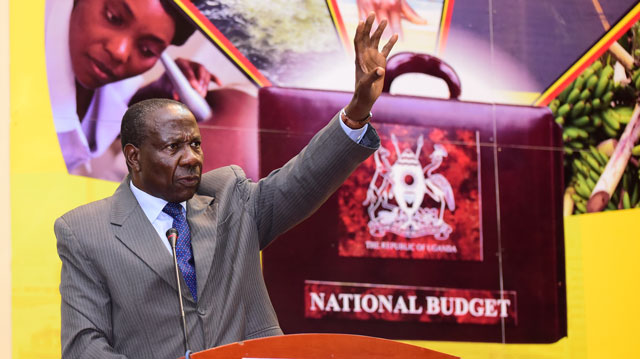
Economists welcome debt repayment but decry budget cuts for social sectors
Kampala, Uganda | JULIUS BUSINGE | The government is seeking to increase spending by 5% to Shs34.3 trillion in the next financial year that starts in July amidst proposed budget cuts for critical sectors including security, education, health, social development, water and environment and agriculture.
The new proposal that is detailed in the Budget Framework Paper (BFP) for the 2019/20 comes four months to the reading of the national budget.
It has already sparked off debate among the followers of the budget making process and its implementation.
One group supports government’s move to cut expenditure for the critical sectors to favor debt repayments and infrastructure projects.
Another group is opposed to the new move saying it is wrong to allocate less money to social sectors because they support human capital development that is linked to performance of the economy.
“This is not good news for addressing social inequality,” said Dr. Enock Twinoburyo – Senior Economist at SDG Center for Africa based in Kigali, Rwanda.
“The poverty that has increased in the past few years requires government to invest more in human capital.”
The new allocations, he said should take into account issues like institutional capacity and human resource development which are important when it comes to effective undertaking of projects like roads, power dams and oil projects.
According to the BFP, the total allocation to social sectors of education, health, social development, water and environment and agriculture will reduce by 12% from Shs7.7tn to Shs6.8tn in the FY2018/2019 and 2019/2020 respectively. In addition, security sector will also suffer a cut.
This, however, contradicts the World Bank human capital development view that advises countries to invest heavily in early healthcare and child education.
Government’s plan is to spend Shs12.6trillion or 37% of the total budget on development expenditure.
The rest of the resource envelope will be used for debt repayment, interest payments and non-revenue funds for domestic debt refinancing.
Interest payments will increase to Shs2.9tn (11.4% of the total budget – second largest share) up from Shs2.5tn in the FY2018/2019.
The domestic revenue is expected to increase by 12.3% to Shs18.3tn following GDP growth projection of 6.2%. This implies that 66% of the new budget will be financed by domestic revenue where taxes will contribute Shs17.8tn to the total domestic revenue.
Julius Mukunda, the coordinator of the Civil Society Budget Advocacy Group (CSBAG) said the local population needs not to be excited ‘for the Shs34 trillion since almost half of the items that comprise it are of no direct benefit.”
He also said the government needs to fast track the development of the medium-term revenue strategy as well as present new tax measures to generate the extra revenue (Shs1.9tn) for the proposed budget.
 The Independent Uganda: You get the Truth we Pay the Price
The Independent Uganda: You get the Truth we Pay the Price


